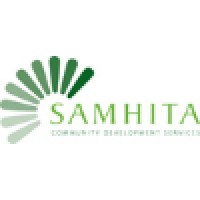Cause Area
Geographies Served
Programs
-
Health education
District
Bhopal
States
Madhya Pradesh
Samhita initiated its health program in 2009, starting with health education interventions. So far, the program has focused on villages and schools in the Rewa region, with over 35,000 individuals participating in two key topics: Tobacco Use Prevention and Child Health. Additionally, Samhita has conducted workshops on women's health issues for centre leaders associated with Samhita Microfinance.
Extensive experience in addressing public health issues among underserved communities in various regions of India has led to the following observations:
1. Rural areas, particularly in remote regions, are likely to persistently face a shortage of adequately trained on-site doctors and healthcare professionals in the near future.
2. The prevalent health challenges in rural India are predominantly linked to infectious diseases and poor health-related behaviors and practices. -
Microfinance
StateDistrict
Muzaffarpur
Gaya
Korba
Bilaspur
Raigarh
Balaghat
Sagar
Rajgarh
Rewa
Satna
Vidisha
Bhopal
Dindori
Mandla
Shahdol
Umaria
Anuppur
Damoh
Shivpuri
Jabalpur
Gwalior
Guna
Jhansi
Gonda
Ashoknagar
States
Bihar
Madhya Pradesh
Uttar Pradesh
Samhita's Microfinance program serves as the initial step among its comprehensive economic initiatives. Its primary objective is to extend financial inclusion services to the most marginalized and impoverished individuals, particularly those residing in remote regions across Central India.
Samhita Microfinance commenced its operations in rural Rewa district, Madhya Pradesh, in December 2007. Simultaneously, an urban microfinance program was initiated in the slums of Bhopal in February 2008. Presently, Samhita offers microfinance services across 37 districts spanning Madhya Pradesh, Uttar Pradesh, Chhattisgarh, and Bihar. Additionally, Samhita led the way in implementing an extensive Financial Literacy Campaign for all its members. -
Financial literacy
District
Bhopal
States
Madhya Pradesh
In 2010, Samhita Microfinance, in collaboration with its technology partner eCubeH Research Labs, initiated an extensive Financial Literacy training campaign. This campaign stands out for its remarkable scale, comprehensive coverage, diverse target audience, and the availability of tools in local languages. The program is dedicated to empowering women with knowledge and skills in managing savings, expenses, debt, investments, risk mitigation strategies, and financial planning for both the present and the future.
-
Legal literacy
District
Bhopal
States
Madhya Pradesh
Numerous women and girls lack awareness of laws related to violence against women, their legal rights, and how to assert these rights. To address this gap, Samhita launched the Legal Rights Awareness Program (LRAP) in 2014-15 with the overarching goal of enhancing awareness among community women about their legal rights and government entitlements. The program also aids participants in accessing these entitlements.
Key components of the program include:
• Gender: Understanding gender, differentiating between gender and sex, gender roles in society, division of labour, duties, rights, and decision-making.
• Patriarchal Nature of Society: Grasping the concept of patriarchy, its control, and power dynamics within families.
• Protection of Women Against Domestic Violence Act, 2005 (PWDVA): Defining various forms of violence and domestic violence, outlining women's rights under PWDVA (including protection orders, residence orders, monetary relief, custody orders, and compensation orders)
Registration Details
-
Registration Number
U85100DL2011NPL222439
-
CSR Form 1
Not Available
-
FCRA
Not Available
About
-
Headquarters
Bhopal, Madhya Pradesh
-
Since
2011
Impact
Samhita Community Development Services has loan clients of over 74,768 people.
Vision and Mission
The Samhita Development Network endeavors to provide essential social services to dispersed and disadvantaged communities, enabling them to lead lives with dignity, opportunity and fulfillment.
Political & Religious Declarations
-
Political Affiliation
-
Religious Affiliation
Location
-
Offices in Cities
Bhopal
Other Details
-
Type
For-profit
-
Sub Type
Section 8 (formerly Section 25)
Website
Technology Adoption
-
SOC 2 Compliant
No
-
Financial Management
-
Beneficiary Management

